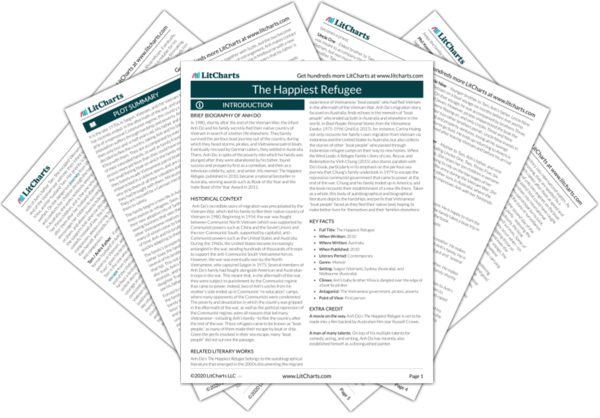AI ToolsNew
Tools to make learning and teaching easier
|
Previous
Prologue
|
The Happiest Refugee: Chapter 1 Summary & Analysis |
Next
Chapter 2
|


Upgrade to unlock the analysis and theme tracking for all of The Happiest RefugeeThe Happiest Refugee!
Get LitCharts A+